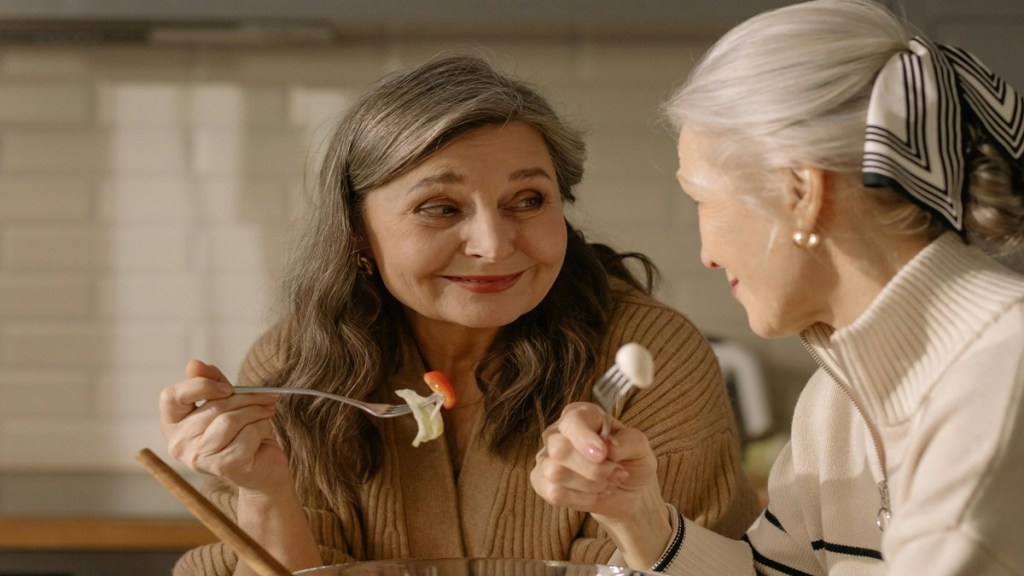Ageing is an inevitable journey of remarkable insight and wisdom. However, it is not pleasing to watch our parents and grandparents develop signs of old age as the risks of health troubles, including dental issues, accompany this process.
According to Dr. Vaibhav Garg, MDS, Conservative Dentistry & Endodontics Director, Vijay Dental Clinic, Raj Nagar, tooth loss is an oral problem that impacts older people’s nutrition and social interactions and signifies a proactive approach to elderly oral care.
Snacking is one of the culprits behind oral problems and tooth loss in older adults, Dr. Garg explained. Read on to learn how snacking impacts the oral health of elderly adults and the effective ways to avoid the potential dental troubles it creates.
What is the impact of snacking on elderly dental health?
As older adults seek convenience when choosing what to eat, it is vital to know how snacking damages their oral health and causes tooth loss in elderly people. Seniors often prefer soft foods over fruits or vegetables due to chewing difficulties caused by dentures or missing teeth.
Dr. Garg highlights that soft cake slices, sweetened fruit juices, cereals with milk, and packaged snacks are cosy options for busy lives and the elderly, but they can significantly damage oral health in the long run.
“Ready-to-eat snacks and beverages are often sugar-loaded. Consuming them throughout the day makes our mouths susceptible to dental decay and weak teeth. Sugar particles from these snacks or drinks stick to the teeth, feeding the harmful germs in the mouth. This releases acids that erode the minerals and the protective tooth enamel, causing tooth decay and cavities,” he told Financial Express.com.
Why snacking is particularly harmful For elderly?
Dental cavities in permanent teeth can progress throughout adult life amidst poor dental hygiene and eating habits. Demineralisation and remineralisation of teeth constantly occur in the mouth.
“As harmful bacteria feed on sugary food particles, the released acids erode the enamel and minerals, causing demineralisation. Conversely, our saliva and water help wash away food particles and acids and replenish the lost minerals to repair the damage,” he revealed.
However, constant snacking, especially on sweet or starchy foods, bathes our teeth in bacterial acids for longer, letting dental caries and cavities develop in no time. Cavities worsen with the continuous intake of sweetened snacks and drinks, causing tooth sensitivity and pain, eventually leading to tooth loss or necessitating tooth extraction.
The harmful effects of constant snacking add to other factors that contribute to tooth loss in elderly people, such as:
- Dental bone loss and weaker gums with ageing
- Untreated gum infections and periodontal diseases caused by hardened plaque deposits
- Weak immune system to fight the infection-causing bacteria as a result of underlying systemic disease
- Escalation of untreated dental issues, including cavities, dry mouth, and gum infections
How to protect elderly teeth From further loss?
Having lost some or all of their teeth often affects how elderly people interact, function, and eat. Fortunately, tooth loss in elderly individuals is not an unavoidable consequence of ageing. Teeth can last a lifetime with proper dental care, a healthy diet, and a healthy lifestyle. There are various aspects we can look after to protect elderly teeth from further damage or loss, which include:
- Better alternatives for snacking: It is crucial to limit sugar-containing snacks to a minimum, as they can worsen cavity formation. Healthy, soft, and easily digestible foods, such as boiled or steamed vegetables, are ideal soft snacks for elderly people. Healthy drinks include soups, buttermilk, freshly made unsweetened fruit juice, and water.
- Ensure regular dentist visits: Regular dental checkups are an integral part of oral care. A dentist can guide the best practices for optimal oral health. As the elderly are at a higher risk of tooth loss, they should be checked by dentists regularly to curb potential dental problems and protect the teeth from further damage.
- Regular brushing and flossing: Daily oral hygiene habits are crucial for elderly oral care. They include brushing twice daily, flossing to clean between teeth, keeping the dental appliances clean, and rinsing with mouthwash. The use of fluoride toothpaste or toothpaste with arginine helps reverse early tooth decay and prevent cavities.
